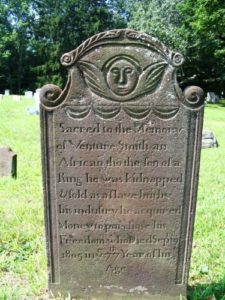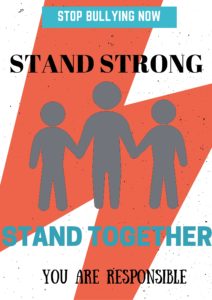Month: April 2015
Four years ago I found a lump on my breast. I am not here to tell you that cancer is a gift. I will not tell you that I learned the true meaning of life or that I treasure the wisdom I gained battling and surviving this disease. I have survived, but I don’t want to own that word because the people who do not survive battled just as hard as I did. And it makes me angry that they are not here to tell their stories. I don’t want to share pink ribbons with you. I’d rather make you angry. That inspires change, and we really need to change the way we talk about the big C.
Cancer makes chaos of the stories we tell ourselves about our lives. The unspoken stories I carried in my body–that I was healthy, that I was strong, that my life was in my own control–were shattered by cancer—not really by cancer itself, but by the implications and threats of it, the treatment for it, and by some of the destructive cultural ideas about what it means that I was inundated with. The cancer itself was removed in the lumpectomy. I was not being treated with chemo and radiation for a cancer that was still in my body; it was for the imagined cancer that might show up in my future life. And this statistical narrative will always be a looming possibility. Cancer makes chaos of all stories about my future. All possibilities of the future now have a shadow narrative threatening to take over.
The stories we tell ourselves try to answer the question of WHY. Bad things are not supposed to happen to good people. Why did this happen to me? It is hard to answer this question without being affected by popular explanations. I want to share a few stories. The first is one that still makes me angry.
One friend told me that I must have gotten cancer because I had not dealt with my “issues.” She said I needed to figure out what I had not dealt with and deal with it. She looked me in the eye and told me that if cancer comes back it will be because I didn’t deal with my “issues.” She did not seem able to hear me when I told her that cancer was not my fault and that I was not in control of whether or not it comes back. She did not hear my recitation of the aggressive nature of triple negative breast cancer or the higher than usual rate of recurrence for this rare cancer. While her insistent blame was a bit extreme, her view came out of mainstream ideas explaining cancer through individual actions, rather than larger systemic forces. Positive thinking, eating right, exercising, and alleviating stress are important for everyone, but doing these things will not protect anyone from cancer because we live in a cancerous world. If we want to understand why people get cancer we need to look to larger causes than individual behavior and broader solutions than just medical research for cures. These things may be necessary, but they are not sufficient. Of course, we need research, but we also need to stop polluting the environment. We need to eliminate structural inequality that puts some people at a disadvantage in society even though they work just as hard as anyone else. Pink ribbons don’t cut it for me or for all of us that need to think critically about what kinds of stories we draw on to make sense of our cancer, our survival, and our lives.
My second story is about the links between inequality, the stress of dealing with it, and 3 women in 3 years with breast cancer. I was first. Triple negative breast cancer is extremely rare, and occurs most frequently among African American and Latina women. Most white women who get it can trace it to genetic markers—BRCA 1 or 2. This cancer is aggressive and has a much higher rate of recurrence than other breast cancers. It is also the breast cancer we know the least about. One thing the Mayo Clinic seems to have figured out is that the higher prevalence of this kind of cancer among women of color is likely connected to the stresses associated with societal inequality, like the intersections of race, gender, and economic inequality. So there I was—white, in case you couldn’t tell—with triple negative breast cancer. It turns out I do not have the genetic predisposition. But what about this question of structural inequality? Are they keeping statistics on lesbians? A few months after my diagnosis, Judy, another white lesbian who was also a professor at Drake was diagnosed with triple negative. Research is clear that the stress caused by dealing with homophobia has negative effects on health. The third woman, who also identifies as queer, was diagnosed with breast cancer after several years of very pointed sexist and homophobic treatment by co-workers; the stress led directly to weight gain, and the cancer she got was linked to excessive weight. Inequality plus stress led to cancer. These two friends of mine and I are what scientists would call “anecdotal evidence,” but for me this is the real story. I think Judy’s family and friends would agree with me. She is no longer here to tell her side. Her triple negative cancer came back two years after her diagnosis. She died a year later. I can say with absolute certainty that she did not die because she failed to deal with her “issues.” She is not gone because of some moral failing. Her loss is not about poor lifestyle choices. She is dead because a rare and aggressive form of a deadly disease that there is no cure for took hold of her being at the cellular level. We will never know for sure what effect homophobia had on her or how much environmental pollution poisoned her body or mine. But the least we can do is to ask hard questions of the stories we hear about cancer.
Black lesbian poet Audre Lorde died of breast cancer in 1992. She wrote in “A Litany for Survival,” “So it is better to speak, remembering, we were never meant to survive.” Her words challenge us to question the stories about inequality that blame individuals for the pain we experience. Survival in this context is about living a meaningful, safe, and legally recognized life, family, identity. The system was not set up to nurture and protect those of us in the borderlands—those whose lives are defined as outside the norm. The power of the norm has profound consequences.
Sometimes I think cancer is a response to oppression, an escape hatch. Other times I think it is the arm of the state, the tentacles of worry and stress and dis-recognition sending invisible troops at the cellular level to attack the integrity of the organism. It is an attack of meaning that spreads and transforms from unequal laws and hateful words to over-replicating cells; some strange alchemy at work, mutating external attacks of legitimacy into an army of bio-invaders. The consequences of inequality are complicated, hidden in plain sight and diverted from acknowledgement by the stories society tells us, and the versions of them we internalize. We need to learn how to tell new stories that lead to social justice and healthy lives for all of us, new stories that provoke us to make the world a safer, more peaceful place for all of us to thrive, not just survive.
Sandra Patton-Imani

